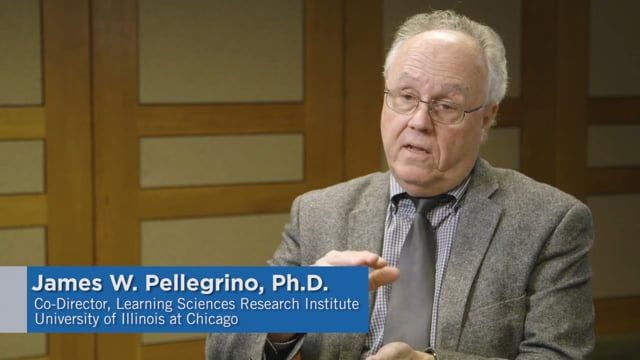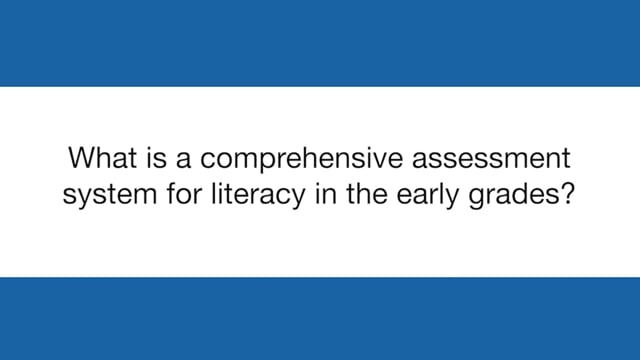We believe that students benefit when educators and policymakers give more deliberate and informed attention to the role that assessment can and should play in supporting literacy.
Since assessment systems are much more than arbitrary collections of assessments, the components of such systems must be carefully chosen so that they:
a) focus on important aspects of literacy and its development,
b) serve the needs of different stakeholders, and
c) are conceptually and operationally coherent.

Why focus on Early Literacy Assessment Systems?
Across Michigan, it is recognized that literacy rates among our students should be better than they are. At the same time, there is recognition that improved literacy requires focused attention at all levels of development and instruction, but most critically on early literacy development.
While significant and meaningful work is underway across Michigan to improve instruction and leadership for early literacy, districts need information and support for implementing high-quality early literacy assessment systems that support learning. Beyond identifying the possible components of such systems, and possible plans for implementation, assessment literacy is needed among multiple stakeholders so that educators at all levels have the knowledge and support structures to implement assessment systems that improve literacy achievement for all of Michigan’s children.
How We Contribute

Early Literacy Assessment Systems (ELAS)
Our comprehensive guide, Early Literacy Assessment Systems That Support Learning, supports districts in developing, implementing, and supporting assessment systems that support early literacy. This Guide is intended to serve as the foundation for the development of policy, resources, and professional learning opportunities that serve to promote assessment systems and practices that effectively support literacy development.
This Guide itself consists of three main sections, each of which can be read on its own to meet the needs and goals of different stakeholders:
- Section I summarizes five key Organizing and Design Principles that should guide districts in creating an early literacy assessment system (ELAS). Each Principle describes a major idea that give rise to a number of Recommendations for design, implementation, and support of a district’s ELAS. The five Principles are clustered in three Implementation Phases.
- Section II features a series of Portraits that follow the literacy development of three children from pre-kindergarten through grade 2. The Portraits provide a rich, descriptive picture of early literacy development and its assessment that simultaneously highlights aspects of each of the five Organizing and Design Principles.
- Section III contains five chapters, each of which provides relevant research and supporting science for each of the Principles and associated Recommendations summarized in Section I. Each chapter ends with a list of suggested tools and resources that could support schools as they carry out the Recommendations.
The Guide concludes with a Glossary of assessment related terms, sets of References associated with the content of the Guide, and a brief description of the landscape of related literacy initiatives across Michigan.
Who Informs Our Work

Our early literacy assessment system work is accomplished through a partnership with the Michigan Department of Education and builds upon the significant early literacy efforts underway in Michigan. It is informed in large part by Michigan’s Literacy Essentials* as well as the contributions and feedback from a diverse network of scholars and practitioners with expertise in cognitive science, educational assessment, literacy development, professional learning, and organizational development.
*The Literacy Essentials are developed and supported by the Michigan Association of Intermediate School Administrators (MAIEA) General Education Network (GELN) Early Literacy Task Force (ELTF).

James Pellegrino, Ph.D.
In this Learning Moment video, Pellegrino, who chaired the ELAS Guide work, describes how the conceptions people have about assessment shape the process of designing and implementing high-quality assessment systems and practices.

Margaret Heritage, Ph.D., formative assessment expert and consultant, and Tanya Wright, Ph.D., associate professor, Michigan State University.
In this Learning Moment video, Dr. Heritage and Dr. Wright answer the question “What is a comprehensive assessment system for literacy in the early grades?”
